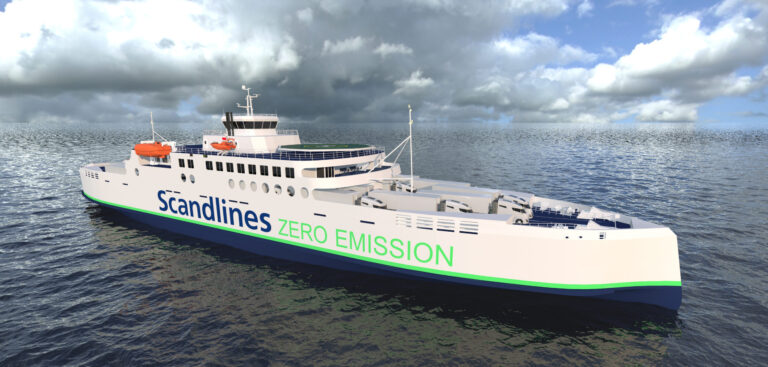The Scandlines zero-emission ferry project will run on an advanced 10MWh lithium-ion battery energy storage system from Leclanché. The project was announced in November 2021 and aims to build the world’s largest electric-powered hybrid ferry.
Leclanché joins the roster of established companies selected to provide critical components, systems and expertise to the Puttgarden Rødby 2024 (PR24). Other companies involved in the project include Norway’s Kongsberg Maritime and Norwegian Electric Systems (NES). The ferry was designed by Norway’s LMG Marin and will be constructed at Cemre Shipyard in Turkey.
The ro-pax freight ferry is expected to enter service in 2024. It will connect Puttgarden ferry harbor on the German island of Fehmarn, with Rødby ferry harbor on the island of Lolland in Denmark – a distance of 18.5km.
“Our team was highly impressed with Leclanché’s technology and real-life maritime industry experience,” said Christian Thiemer, technical superintendent at Scandlines. “Some of the critical factors impacting our selection included Leclanché’s liquid-cooled battery architecture as well as the energy density of its cells. Together, in collaboration with our PR24 team of experienced providers, we are confident that our freight ferry will set the standard for powerful, sustainable and safe marine technology.”
Leclanché will supply a state-of-the-art G/NMC battery system with a capacity of 10,028kWh and a maximum voltage of 864V, guaranteed for 10 years. The battery energy storage system uses a highly redundant architecture with 48 battery strings distributed across eight switchboards. Delivery will begin in January 2023.
“We are extremely gratified with our selection by Scandlines and NES as the critical battery system provider for the prestigious Puttgarden Rødby 2024 hybrid freight ferry project,” said Anil Srivastava, CEO of Leclanché. “Our team has been delivering large-capacity marine battery systems for customers as diverse as Grimaldi Lines, Damen and Wasaline – and breakthrough projects, including the e-ferry Ellen, funded by the municipality of Aerø, Denmark, and the European Union as well as the recently launched Yara Birkeland, the world’s first autonomous and fully electric container ship. We look forward to a long-term partnership with Scandlines to fulfill our common vision of promoting electric and hybrid vessels, operating with green power, in support of a sustainable future.”
The Scandlines zero direct emission freight ferry will be 147.4m long, 25.4m wide and 5.3m design draft. The double-ended ferry’s freight capacity will be 66 freight units carrying a maximum of 140 passengers at a 10kts service speed. As a hybrid ferry, her crossing time between the two ports will be 45 minutes. In fully electric mode, crossing time is 70 minutes and the ferry will be emission free.



